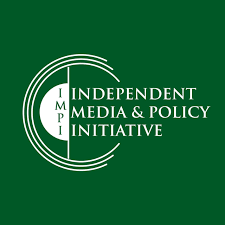The Independent Media and Policy Initiative (IMPI) has issued a statement to clarify and correct the deliberate misinterpretation of Nigeria’s development loan data by Senator Mohammed Ali Ndume. The senator, in a recent television interview, raised concerns about Nigeria’s development loans, particularly criticizing the $9.45 billion in borrowings since June 2023. IMPI is compelled to set the record straight and provide the Nigerian public with accurate information, especially given the sensitive nature of national debt and the current economic climate.
Senator Ndume, now serving his fourth consecutive term in the Senate, has repeatedly commented on Nigeria’s national debt without offering sufficient context or balanced analysis. His recent remarks misrepresented the figures, causing unnecessary concern about government borrowing. While the total public debt of Nigeria stood at N144.67 trillion in local currency, there has actually been a significant decline in Nigeria’s debt in dollar terms—from $108.23 billion in December 2023 to $94.23 billion by December 2024, reflecting a reduction of $14 billion within a single year. This represents an extraordinary fiscal achievement that Senator Ndume overlooked in his commentary.
Instead of acknowledging the remarkable reduction in Nigeria’s debt, Senator Ndume chose to focus on an unsubstantiated claim that these loans were being misallocated to “non-tangible” projects. This perspective, according to IMPI, reveals a limited understanding of modern development economics. In today’s world, development is not solely about physical infrastructure, but also about human capital—skills, education, health, and social protections—that are essential to a productive economy and a prosperous nation.
Countries like India and China have successfully advanced by investing in both physical infrastructure and human capital. Investments in education, healthcare, gender inclusion, and agriculture are key drivers of long-term national prosperity. By focusing exclusively on physical infrastructure, as Senator Ndume suggests, we risk overlooking the broader picture of human development, which is critical for building a sustainable and thriving economy.
Moreover, Senator Ndume’s criticism fails to acknowledge the nature of the loans Nigeria has been securing. Unlike commercial loans, which come with high-interest rates and short repayment periods, Nigeria’s development-backed loans are concessionary in nature. These loans, often provided by institutions like the World Bank, feature favorable terms such as low interest rates, extended repayment periods (sometimes as long as 40 years), and multi-year moratoriums. These terms make the loans an effective tool for funding projects that private banks are unwilling to support, such as investments in education, health, and other intangible sectors that are crucial for long-term development.
The World Bank and other multilateral financial institutions play a critical role in funding human capital development through these types of loans. With nearly 80% of Nigeria’s multilateral debt in 2024 coming from the World Bank, it is clear that these loans are targeted at fostering human development, not just physical infrastructure. In fact, the World Bank’s philosophy is rooted in the belief that investing in education, healthcare, and social welfare is essential for building a more prosperous and stable economy.
Contrary to Senator Ndume’s claims, the loans Nigeria has secured from the World Bank have not been as extensive as he suggested. According to IMPI’s analysis, the World Bank’s loans to Nigeria in 2024 amounted to $22.32 billion, a modest increase from $21.15 billion in 2023. This represents a growth of just 5.5%, not the $9.5 billion figure mentioned by Ndume. Additionally, Nigeria’s debt to the International Monetary Fund (IMF) has seen a significant reduction, falling by 67.6% from $2.47 billion in 2023 to $800.23 million in 2024.
This data supports the argument that the Tinubu administration is not recklessly accumulating debt, but is instead strategically managing Nigeria’s debt portfolio, balancing new loans with efforts to reduce the overall debt burden. The Nigerian government’s careful management of development loans should be praised for its prudence, not disparaged with misleading claims.
Furthermore, Senator Ndume’s assertion that these loans bypassed parliamentary scrutiny is incorrect. The World Bank’s lending process involves rigorous internal approvals, followed by Nigerian National Assembly concurrence before disbursement. In 2024, the World Bank approved six projects valued at $4.25 billion for Nigeria, but the actual disbursements between 2023 and 2024 totaled only $2.36 billion—far from the $9.5 billion Ndume suggested.
IMPI finds it troubling that Senator Ndume would make such misleading statements about development loans, especially given his position as a senior lawmaker responsible for shaping national policy. Misrepresenting facts to score political points not only undermines informed public discourse but also erodes trust in democratic institutions. Nigeria’s national debt is a reflection of a government that is strategically managing resources to fund development projects while responsibly reducing its overall debt.
It is crucial that policymakers, particularly those in positions of power and influence, adhere to the principles of transparency and accuracy when engaging with the public. Nigerians deserve clear and truthful information about their country’s financial health and development agenda.
In conclusion, rather than seeking to undermine the government’s debt management strategy, Senator Ndume and other stakeholders should recognize the Tinubu administration’s commitment to responsible fiscal policy and its focus on both human and physical infrastructure development. Misleading statements, particularly on issues as critical as national debt, have the potential to misinform the public and hinder the nation’s development.

